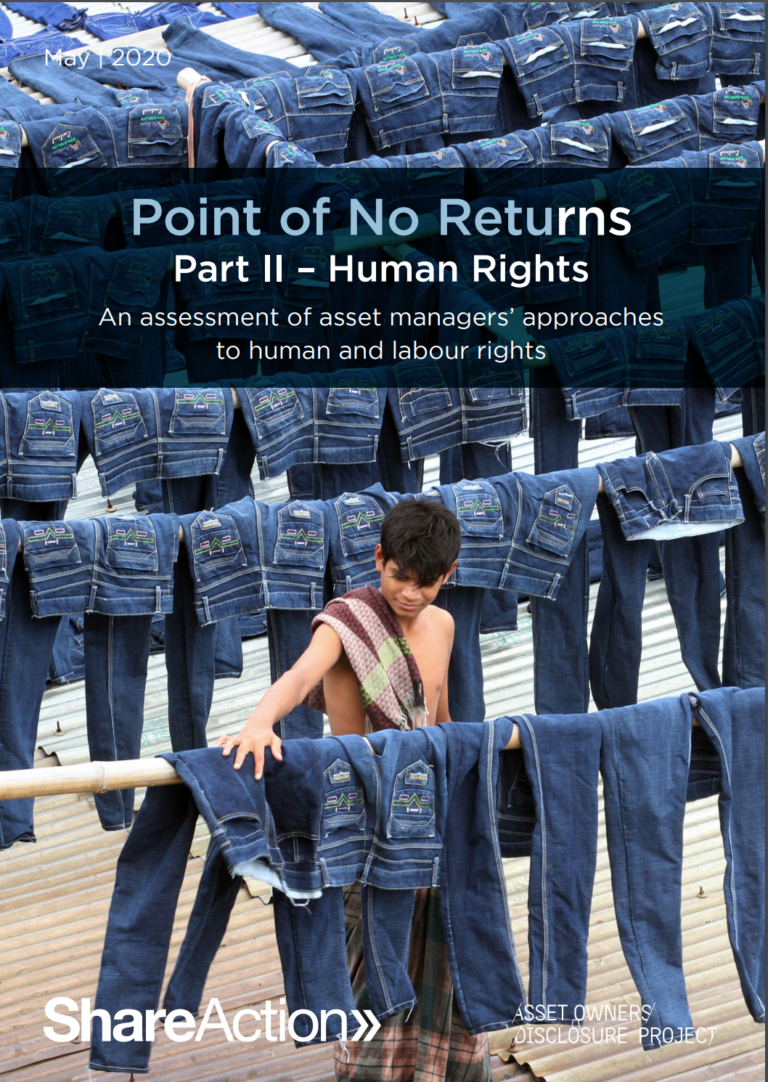Point of No Returns: A ranking of 75 of the world’s largest asset managers’ approaches to responsible investment
This is the first in a series of four reports. This report includes the ranking of asset managers, and analysis of their performance on stewardship, transparency and governance. The following three parts of this series, to be released in the...

